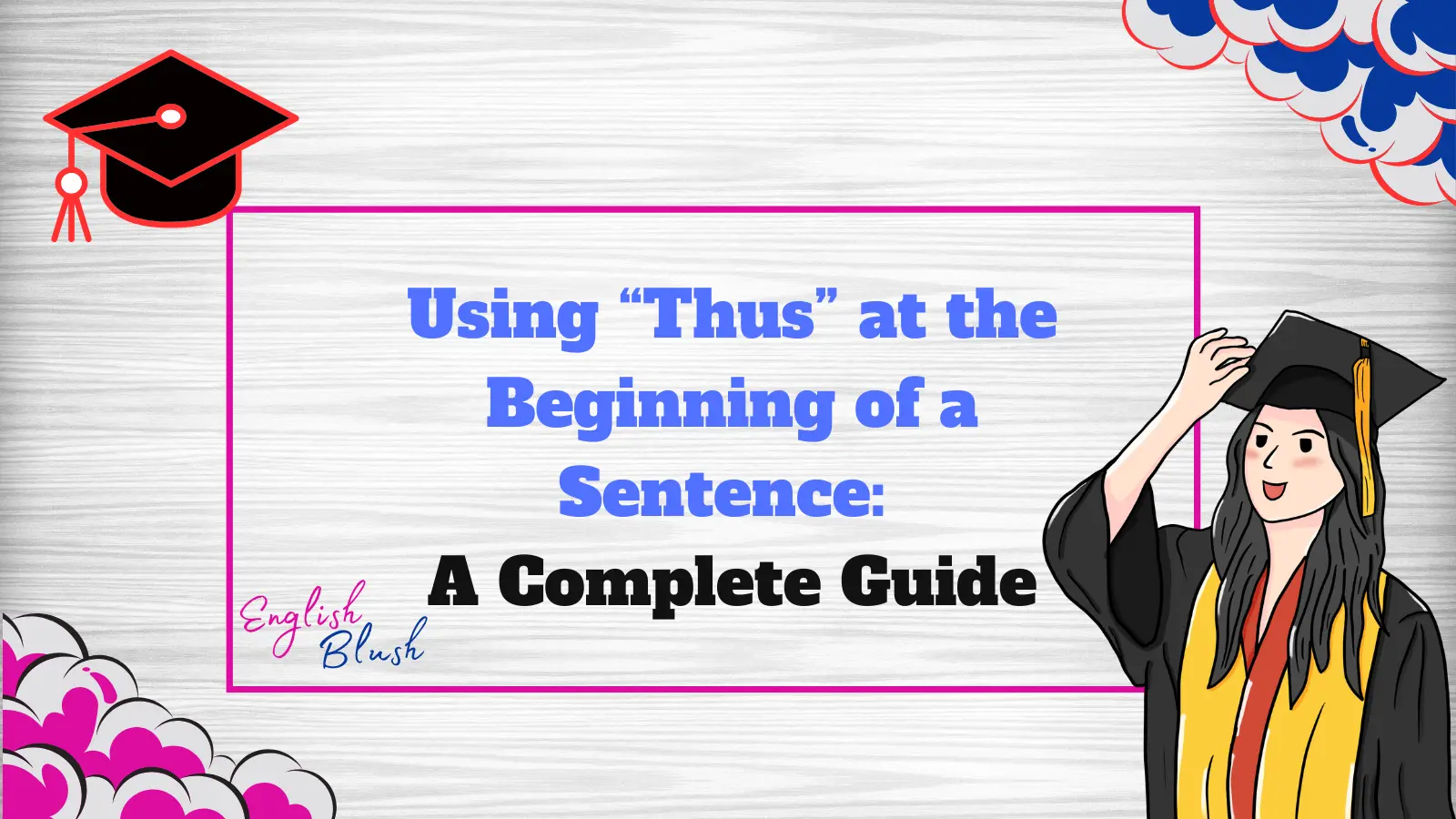“Thus” is a word we often see in formal writing, but it can work in other settings too. Whether you want to use it in a research paper, an essay, or even informal writing, understanding how to use “thus” correctly can make your work smoother. This article will explain how to use “thus” at the beginning of a sentence, its meanings, alternatives, and examples.
What Does “Thus” Mean?
“Thus” is an adverb that often connects ideas. It shows cause and effect, how something happened, or what result came from it. When you use “thus,” you’re saying “as a result” or “therefore.”
For example:
- The experiment was a success. Thus, we can apply the findings to real-life situations.
Here, “thus” tells us the conclusion based on the experiment’s success.
Is It Correct to Start a Sentence with “Thus”?
Yes, starting a sentence with “thus” is perfectly fine! In fact, it’s common in formal writing like academic papers, professional reports, and essays.
However, you need to make sure it fits the sentence. Use “thus” only when you’re showing a result, conclusion, or logical outcome.
When to Use “Thus” at the Start of a Sentence
1. In Formal Writing
In formal contexts, “thus” is often used to connect ideas or wrap up arguments. You might find it in:
- Academic papers
- Research articles
- Business reports
Example:
- The team conducted extensive tests. Thus, the product was proven to meet quality standards.
2. In Informal Writing
Though less common, “thus” can also appear in informal settings, like blogs or casual emails, when you want to sound clear and logical. However, using simpler alternatives like “so” or “therefore” might feel more natural in these cases.
Example:
- She forgot her umbrella. Thus, she got soaked in the rain.
3. To Show Cause and Effect
If you want to explain why something happened or what resulted from an action, “thus” works well.
Example:
- The power went out during the storm. Thus, the meeting was rescheduled.
Common Alternatives to “Thus”
If you feel “thus” sounds too formal or you want to add variety, here are some alternatives:
1. Therefore
- Similar formality as “thus.” Works in academic and formal settings.
- Example: He missed the deadline. Therefore, his grade was lowered.
2. Consequently
- Another formal option to show cause and effect.
- Example: The bridge was not maintained. Consequently, it collapsed after heavy rain.
3. Hence
- Often interchangeable with “thus,” but more common in British English.
- Example: The instructions were unclear. Hence, many users struggled with the setup.
4. So
- Simple and casual, perfect for informal contexts.
- Example: It was late. So, we decided to call it a night.
Using “Thus” Correctly
Here are a few things to keep in mind to use “thus” correctly:
1. Follow Logical Flow
Use “thus” only when there’s a clear cause-and-effect relationship.
Wrong:
- The room was quiet. Thus, I finished the book quickly.
Right:
- The quiet room allowed me to focus. Thus, I finished the book quickly.
2. Use Correct Punctuation
When “thus” starts a sentence, it’s often followed by a comma:
- He improved his study habits. Thus, his grades went up.
If “thus” comes in the middle of a sentence, add commas before and after it:
- The project, thus, required extra funding.
3. Avoid Overusing “Thus”
Even in formal writing, using “thus” too much can feel repetitive. Switch it up with alternatives like “therefore,” “consequently,” or “as a result.”
Examples of “Thus” in Sentences
To make things clearer, here are examples of “thus” used at the beginning of sentences across various contexts:
Formal Examples
- The study concluded the treatment was effective. Thus, the researchers recommended further trials.
- The company experienced record profits this quarter. Thus, investors remain optimistic about its future.
Informal Examples
- He forgot to set an alarm. Thus, he woke up late.
- The weather was perfect. Thus, we decided to have a picnic.
Mixed Context Examples
- The computer froze mid-task. Thus, all unsaved data was lost.
- The artist worked tirelessly on the painting. Thus, the final piece turned out beautifully.
Misusing “Thus” and How to Avoid It
1. Don’t Use It Without Cause and Effect
Wrong:
- She bought a book. Thus, she had dinner early.
Right:
- She finished reading the book quickly. Thus, she had time for dinner early.
2. Watch Sentence Length
If your sentence is too long, “thus” can feel buried. Keep it concise.
Wrong:
- The weather forecast predicted rain, so I decided to stay indoors and work on my painting project, thus avoiding getting caught in the storm.
Right:
- The forecast predicted rain. Thus, I stayed indoors to avoid getting caught in the storm.
Final Thoughts
“Thus” is a handy word that makes your writing clear, logical, and professional when used correctly. While it’s more common in formal writing, it can fit in casual writing if used sparingly.
When starting a sentence with “thus,” ensure it connects ideas logically. Keep an eye on sentence flow, punctuation, and alternatives to avoid sounding repetitive. With these tips, you’ll master using “thus” and improve your writing!





